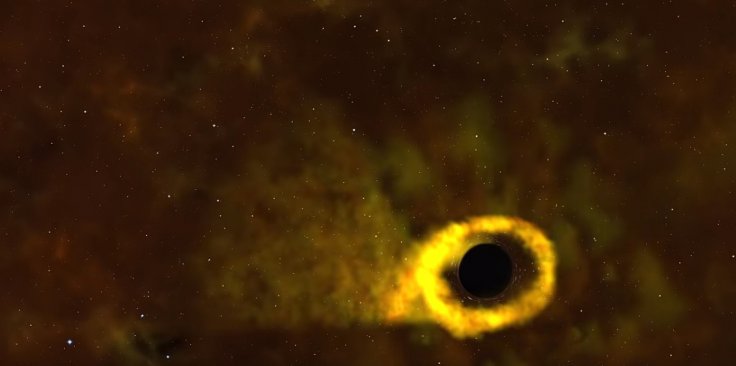
Black holes are considered the most mysterious entity in the universe and it was around a few weeks back that scientists successfully captured the view of a black hole violently devouring a doomed star. Scientists spotted this cosmic devour with the help of NASA's orbiting Transiting Exoplanet Survey Satellite (TESS).
After making the milestone discovery, scientists revealed that the star which was devoured had the same size as our sun and it was eventually sucked into oblivion by the supermassive black hole in a rare cosmic occurrence called 'tidal disruption event'.
"This was really a combination of both being good and being lucky, and sometimes that's what you need to push the science forward," said Thomas Holoien, an astronomer at the Carnegie Institution for Science who led the study, Reuters reports.
The research report published in the Astrophysical Journal also revealed that this phenomenon usually happens when a star reaches too close to a supermassive black hole. As the star gets nearer to the black hole, the dark entity's mindblowing gravitational force tears it apart.
Some of the star's materials get tossed into space during this phenomenon, while the remaining get plunged into the black hole, forming a disk of hot, bright gas as it gets swallowed.
At this juncture comes the billion-dollar question, will the sun ever be devoured by a black hole? And the theoretical answer is 'Yes'. M87, a supermassive black hole is located 50 million light-years away from the earth, and it is one of the most gigantic black holes discovered so far, with a mass equal to 6.6 billion times of our sun.
It should be noted that such a giant black hole will have a huge event horizon, the edge from which nothing can escape its clutches. Interestingly, light from the sun takes almost four earth hours to reach Neptune, the distant planet in the solar system. The event horizon of the M87 black hole is four times larger than Neptune's orbit, which indicates that this dark entity could swallow the entire solar system without any mercy.









